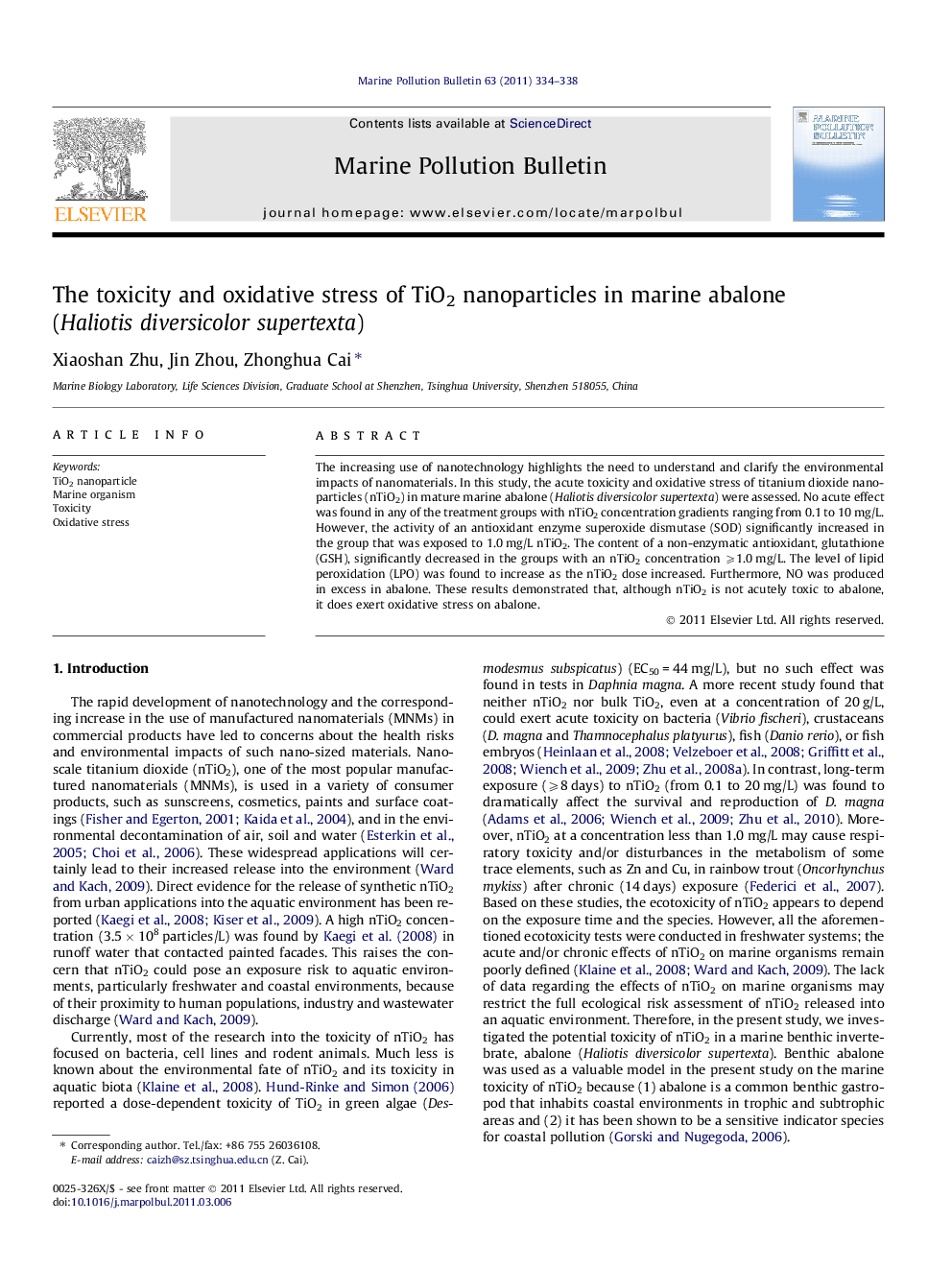| Article ID | Journal | Published Year | Pages | File Type |
|---|---|---|---|---|
| 6360705 | Marine Pollution Bulletin | 2011 | 5 Pages |
The increasing use of nanotechnology highlights the need to understand and clarify the environmental impacts of nanomaterials. In this study, the acute toxicity and oxidative stress of titanium dioxide nanoparticles (nTiO2) in mature marine abalone (Haliotis diversicolor supertexta) were assessed. No acute effect was found in any of the treatment groups with nTiO2 concentration gradients ranging from 0.1 to 10 mg/L. However, the activity of an antioxidant enzyme superoxide dismutase (SOD) significantly increased in the group that was exposed to 1.0 mg/L nTiO2. The content of a non-enzymatic antioxidant, glutathione (GSH), significantly decreased in the groups with an nTiO2 concentration ⩾1.0 mg/L. The level of lipid peroxidation (LPO) was found to increase as the nTiO2 dose increased. Furthermore, NO was produced in excess in abalone. These results demonstrated that, although nTiO2 is not acutely toxic to abalone, it does exert oxidative stress on abalone.
⺠No acute mortality was found. ⺠Lipid peroxidation level increased as the nTiO2 dose increased. ⺠Nitric oxide was produced in excess. ⺠nTiO2 can exert oxidative stress on abalone.
